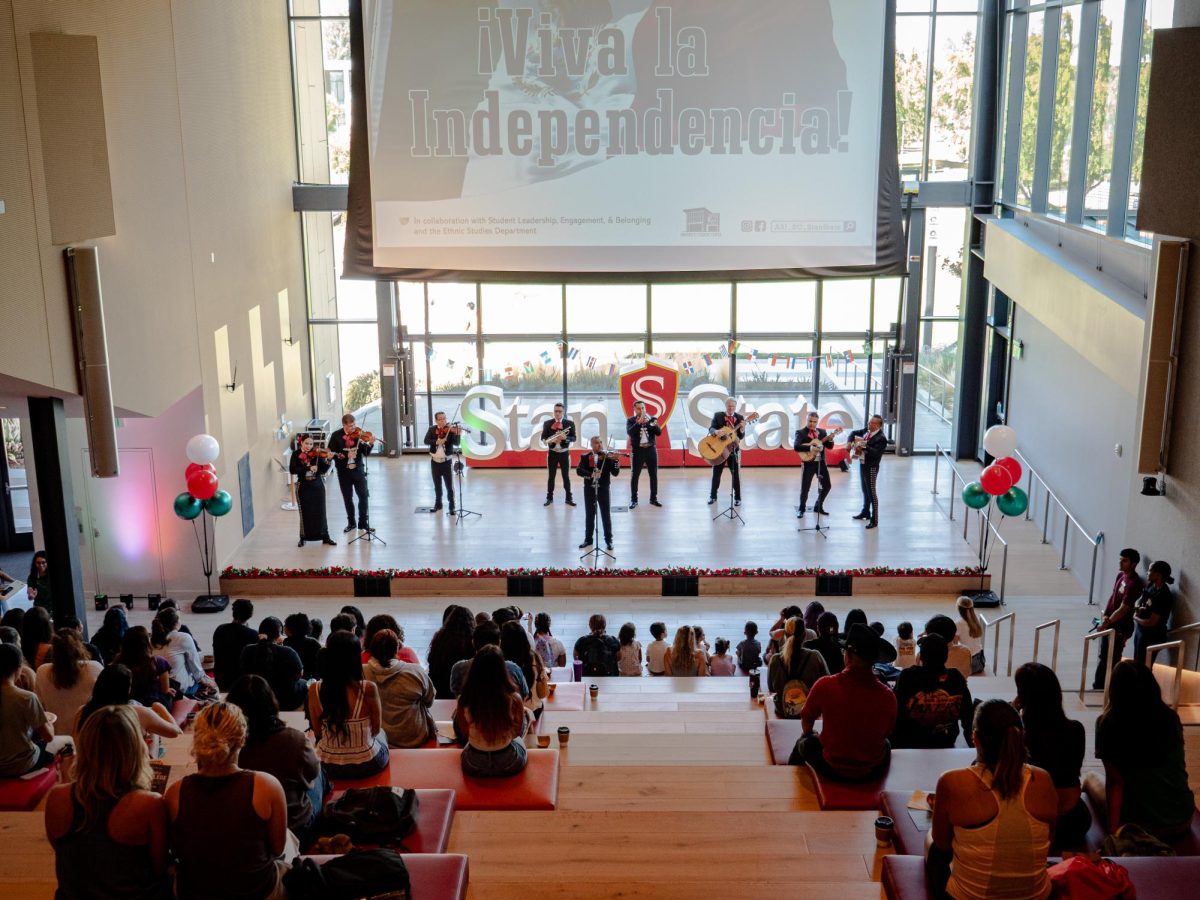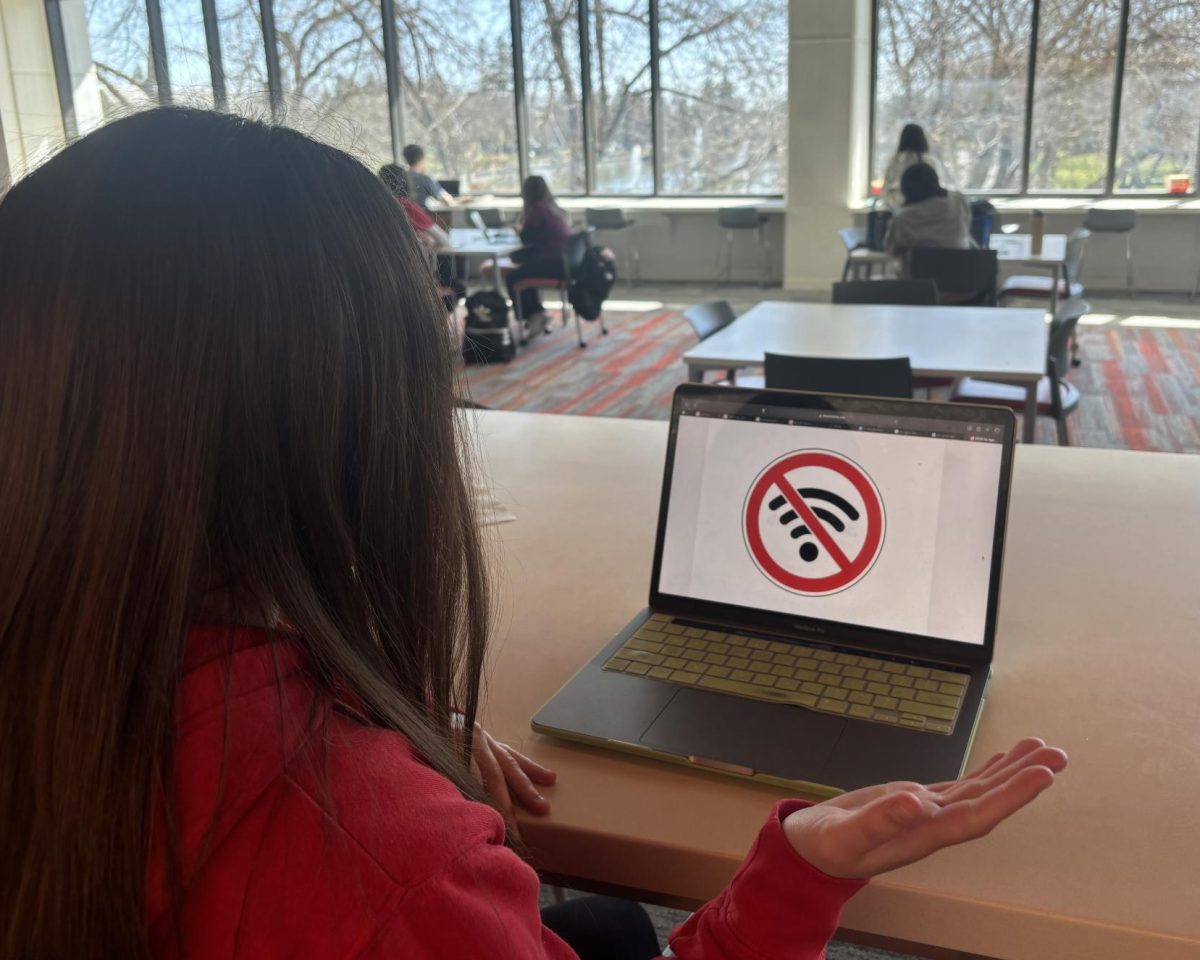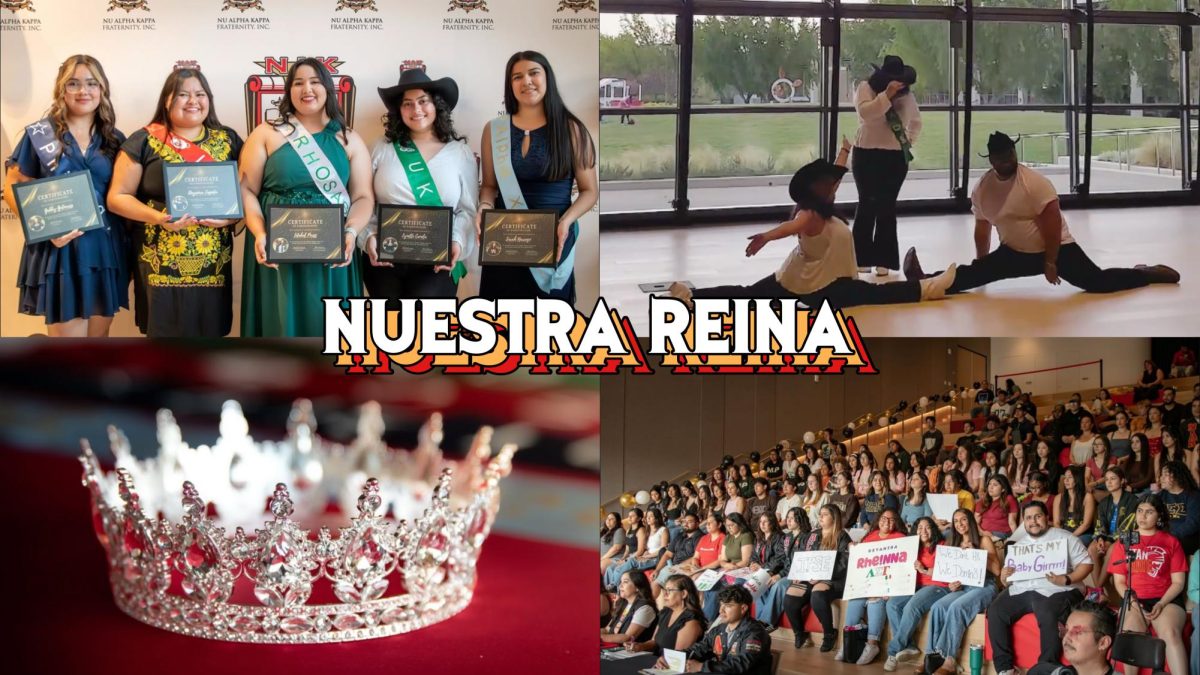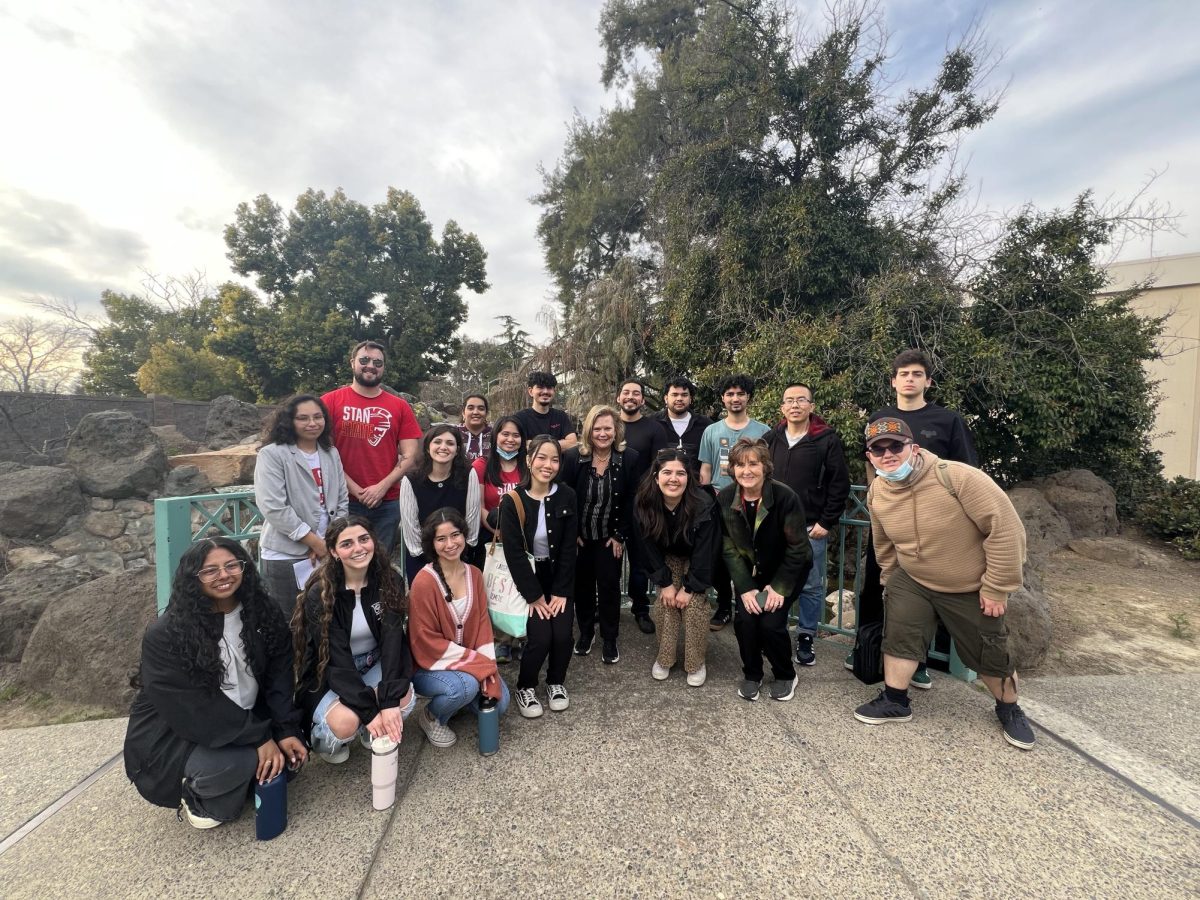California State University, Stanislaus (Stan State) expressed their devoted gratitude and respect for labor leader and civil rights activist César E. Chávez on their day-long 21st annual César E. Chávez Memorial Celebration on March 15. Being located in the heart of agriculture and serving a large Latino student population, Stan State displays a special connection to such an important American farm worker.
The day-long celebration began with the Movimiento Estudiantil Chicano de Aztlán (M.E.Ch.A) displaying a platform with colorful posters and paintings of the well-respected labor leader. M.E.Ch.A also provided traditional Mexican music as well as music inspired by the powerful labor movement to enlighten the campus on Chávez’s work.
Throughout the day, this year’s guest of honor professor of History in Chicano/Latino Studies at the University of California, Irvine (UC Irvine), Dr. Ana Elizabeth Rosas delivered engagement sessions that lead up to her evening presentation.
Outside of Snider Hall, Stan State students and people of the surrounding community circled up to watch the Folklórico group “Los Falcones” perform. This dance group is made up by young Mexican-American ladies, ranging from ages of five to college students.
Alejandra Ozuna (junior, Sociology) has been dancing for Los Falcones for four years now, and expresses what it means to dance for César Chávez Day.
“Not only for me, but for all of us, it is something really good for us to participate in because once we come here a lot of us start forgetting where we come from and we forget our culture and traditions, so it’s really nice to keep that alive and not forget where we come from,” said Ozuna.
Folklórico group Los Falcones has been existing for about 18 years now, and Event Coordinator, Mayra Martínez, expresses what it means to see these dancers perform in such day and how it represents the Latino community.
“I appreciate spending the time that I do with these girls and the hard work that they put into it. It’s wonderful when I see them dancing out there. I’m as proud as if they were all mine,” said Martínez. “It brings me pride. It shows our Mexican-American culture and it is nice to be able to share that with everybody who is here.”
After enjoying the colorful folklórico performances, the audience was told to make their way into Snider Hall. There, students and the community were able to walk through the César Chávez art and essay galleries and observe various art pieces that represent farm workers and the César Chávez movement, as well as essays that were talking about the movement and the importance of it.
After settling down and taking their seats, the audience engaged in a presentation given by Dr. Rosas.
Throughout the presentation, Rosas emphasized how families were separated through the Bracero Program, a program initiated by the American government in 1942 that brought into the country Mexican men to do the hard labor work others were not willing to do in the U.S.
“The emphasis to talk about the Bracero Program, as we celebrate the legacy of César Chávez, was because César Chávez had a very unique response to the Bracero Program. He really opposed this way of laboring people, he opposed this way of separating people, or creating division and competition amongst people of Mexican descent in the United States and in México. He was willing to confront that, and often times, made difficult decisions because of that. So, talking about this program felt very appropriate,” explained Rosas.
Rosas made it known that she and her sister, Stan State Ethnic Studies Professor Dr. Abigail Rosas, are daughters of former undocumented immigrant parents, and for them to be involved in such topic makes them think that their parents are appreciative of it.
“I think they see it as us not forgetting or being neglectful of our own history,” said Rosas. “When my parents were undocumented we did live with certain fear about being detained or separated from each other. So, I think them seeing us, my sister and I, invest ourselves professionally towards bringing this history to life with rigor, evidence, with the people hardest hit front and center. I think that they see it as the right thing to do, the least we can do, and it is great that you actually get asked to do these events.”
At the end of this event, Rosas stressed the fact that Mexican-American children should not be shy in regards of asking their family about their history or about how they came into this country and forged a livelihood. She said that by doing so, students of such will be more knowledgeable about themselves, about where they come from, and will make sense of how to use what they know about themselves.
Rosas was appreciative with all the students who attended her teach-ins and her presentation and hopes that the Mexican-American community stays practicing their culture and keeps learning from it.
Stan State, along with other CSU campuses will close campus for Cesar Chavez Day on Thursday, March 31 in honor for Chavez’s work.
Categories:
Stan State celebrates 21st annual César E. Chávez Memorial Celebration
Stan State student Vanessa Uribe (senior, Criminal Justice) stands in quad to inform students of Chavez’s life and importance
0
Donate to Signal
Your donation will support the student journalists of California State University, Stanislaus. Your contribution will allow us to purchase equipment and cover our annual website hosting costs.
More to Discover











